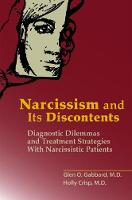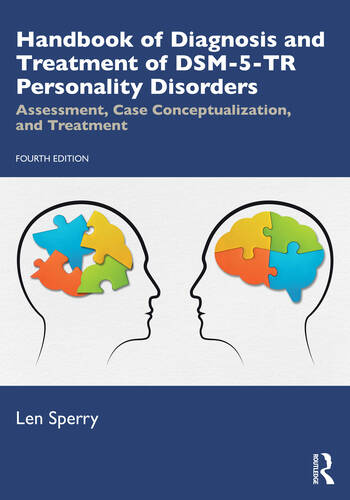Cambridge Guide to Psychodynamic Psychotherapy
Part of Cambridge Guides to the Psychological Therapies series - more in this series

Book Details
- Publisher : Cambridge University Press
- Published : August 2023
- Cover : Paperback
- Pages : 300
- Category :
Clinical Psychology - Category 2 :
Individual Psychotherapy - Catalogue No : 97954
- ISBN 13 : 9781009108508
- ISBN 10 : 1009108506
There are currently no reviews
Be the first to review
A unique and accessible guide to contemporary psychodynamic therapy and its applications. Introduced with a foreword by Nancy McWilliams, an author line-up of experienced educators guide the reader through the breadth of psychodynamic concepts in a digestible and engaging way. The key applications of psychodynamic psychotherapy to a range of presentations are explored, including anxiety, depression, problematic narcissism as well as the dynamics of 'borderline' states. Specific chapters cover the dynamics of anger and aggression, and working with people experiencing homelessness. A valuable resource for novice and experienced therapists, presenting a clear, comprehensive review of contemporary psychodynamic theory and clinical practice. Highly relevant for general clinicians, third-sector staff and therapists alike, the authors also examine staff-client dynamics and the development of psychologically-informed services underpinned by reflective practice. Part of the Cambridge Guides to the Psychological Therapies series, offering all the latest scientifically rigorous, and practical information on a range of key, evidence-based psychological interventions for clinicians.
Reviews and Endorsements
Unlike psychoanalytic authors whose writing is oriented mainly toward colleagues with extensive analytic training, these contributors intend their chapters to reach audiences that may be new to a psychoanalytic frame of reference, or sceptical of it, or confused by it. Somehow, they have also made the book interesting and clinically relevant to experienced psychoanalytic readers … I know from experience that it is not easy to produce a multi-authored compendium whose final product embodies an overall continuity and integration, and so I am impressed that the authors of this volume have managed that feat. I urge readers of all mental health disciplines, professional involvements, and theoretical orientations to spend time with this worthy and important book. I think you will find it as fascinating and clinically helpful as I did.
Nancy McWilliams - Ph.D., Distinguished Retired Professor, Rutgers Graduate School of Applied & Professional Psychology
I thoroughly enjoyed reading this book and found it accessible and informative. The various authors conveyed the principles, practices, research, theories, and history of psychoanalysis in a way that was engaging and easy to understand, even for those such as myself, from outside the field. For clinicians (specialists and generalists alike) understanding the unconscious processes taking place in the consulting room can be invaluable in delivering effective care to our patients, and this book was able to provide insights into this important area.
Dame Clare Gerada - President, Royal College of General Practitioners (RCGP), PRCGP FRCPsych FRCP (Hons)
This excellent book does exactly what it says it will; to be a guide to what psychodynamic psychotherapy is, how to do it well and for whom it works best. For too long, psychodynamic psychotherapy has been plagued by what we now might call ‘deep fakes’; first, that the idea that psychological therapists who think this way holds strange and esoteric sets of beliefs about how the mind works, and second, that there is no evidence that treatments based on this paradigm might be helpful. This helpful book outlines why both ideas have been conclusively proved wrong. I have no doubt that the future of psychiatry needs to be psychodynamic, and this book shows why psychodynamic thinking applied to psychiatry not only makes it more interesting, but makes us as psychiatrists more human and more effective.
Gwen Adshead - Consultant forensic psychiatrist and psychotherapist, Broadmoor Hospital, Berkshire
The book demonstrates the ways in which psychodynamic psychotherapy can be applied with different diagnostic conditions. It describes important techniques and explains their use in clinical examples. Readers will not be disappointed with this wonderful publication.
Gary B. Kaniuk - Doody’s Medical Reviews
Table of Contents
Foreword by Nancy McWilliams
Preface by Adam Polnay and Rhiannon Pugh
Part I - An Overview of the Model
1. An Historical Overview of Psychodynamic Psychotherapy
Allan Beveridge
2. The Supporting Theory of Psychodynamic Psychotherapy
Adam Polnay and Rhiannon Pugh
3. A Brief Description of the Empirical Basis of Psychodynamic Psychotherapy
Victoria Barker and Adam Polnay
4. An Outline of Psychodynamic Psychotherapy
Rhiannon Pugh and Adam Polnay
Part II - The Model of Psychodynamic into Practice
5. Framing a psychodynamic space
Adam Polnay
6. The Goals of Psychodynamic Psychotherapy
Rhiannon Pugh
7. The specific Techniques of Psychodynamic Psychotherapy
Rhiannon Pugh and Adam Polnay
8. The overall Structure of Psychodynamic Psychotherapy
Adam Polnay
9. Psychological Assessment and Formulation in Psychodynamic Psychotherapy
Victoria Barker
10. Some Reflections on the Supervisory Process
David Bell
Part III - Application for Mental Health Presentations
Applications of Psychodynamic Psychotherapy with accompanying Case Study description for each presentation
11. Psychodynamic approaches to anxiety
Lauren Wilson
12. The psychodynamics of depressing/depressed states
Adam Polnay
13. Dynamics of borderline states of mind
Victoria Barker
14. Narcissistic difficulties, a transdiagnostic presentation requiring a system-wide approach
Susan Mizen
Part IV - Application of Psychodynamic Psychotherapy in Different Populations and in Different Settings
Beyond 1:1 therapy- working psychodynamically with clinicians, teams and organisations
Adam Burley and Adam Polnay
15. Applications of psychodynamic theory and principles outside of specialist psychotherapy settings
16. An introduction to the dynamics of anger, aggression and violence
17. Psychologically informed organisations and services
18. Psychodynamic reflective practice groups
19. Psychodynamic consultation to clinical teams
Other forms and settings of psychotherapeutic work
20. A psychodynamic approach to working with people experiencing multiple exclusion homelessness
Adam Burley
21. Psychodynamic psychotherapy online and by phone
Lauren Wilson
22. Group analysis and its applications
Allyson Lumsden
Glossary of Terms
About the Author(s)
David Bell is a Consultant Psychiatrist at the Tavistock Clinic in London, where he directs the Fitzjohn’s Unit, a specialist service for serious/complex psychological disorders. He is visiting Professorial Fellow, Birkbeck College, London and past President of the British Psychoanalytical Society. Throughout his career he has been deeply involved in the relation between psychoanalysis and literature, philosophy and politics, and has made numerous contributions in these areas. He is one of the UK’s leading psychiatric experts in asylum/human rights. He is contributing editor of Reason and Passion and Psychoanalysis and Culture: A Kleinian Perspective.
Customer Reviews
Our customers have not yet reviewed this title. Be the first add your own review for this title.
You may also like
Narcissism and Its Discontents: Diagnostic Dilemmas and Treatment Strategies...
Glen O. Gabbard
Price £36.00







